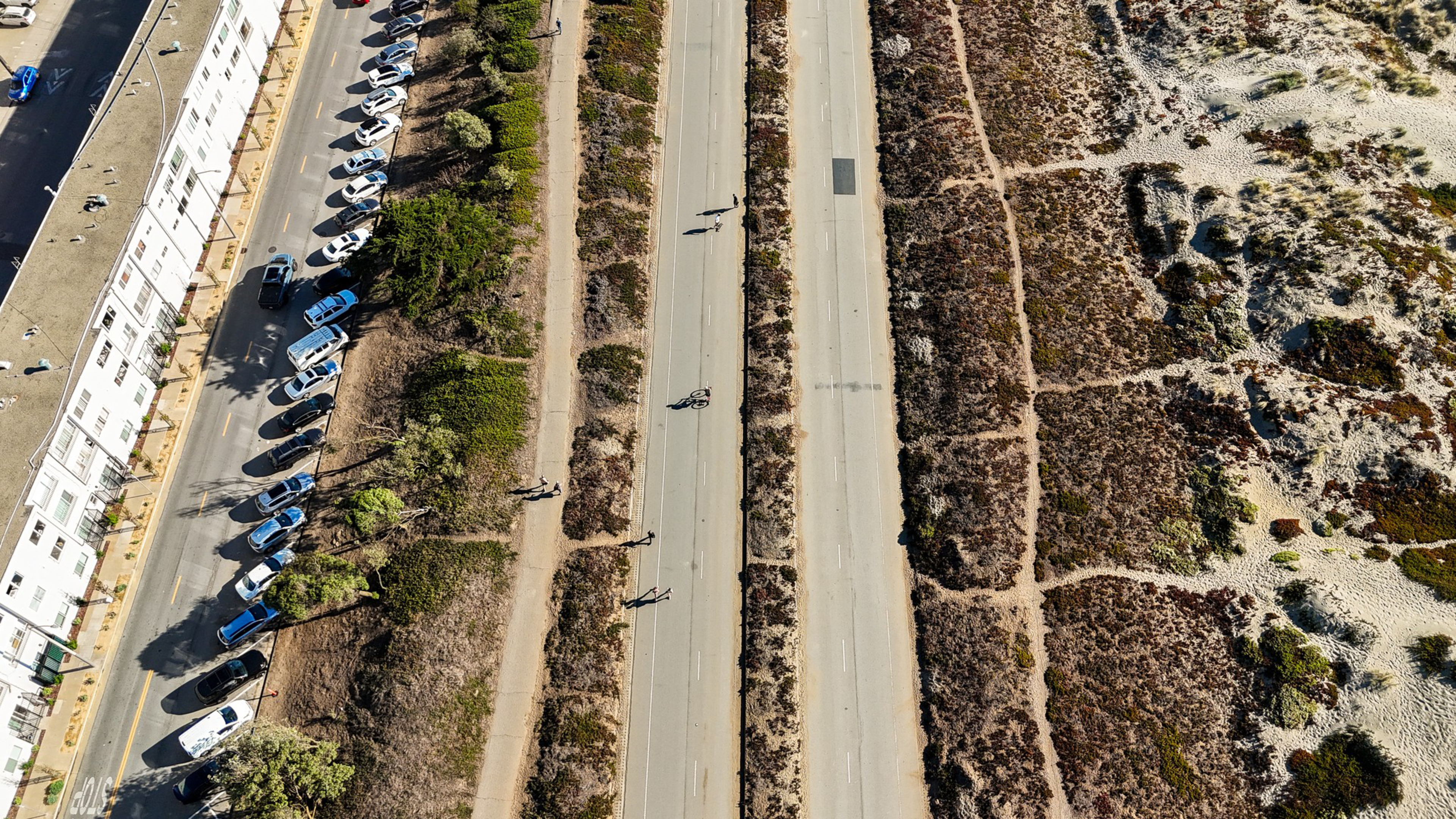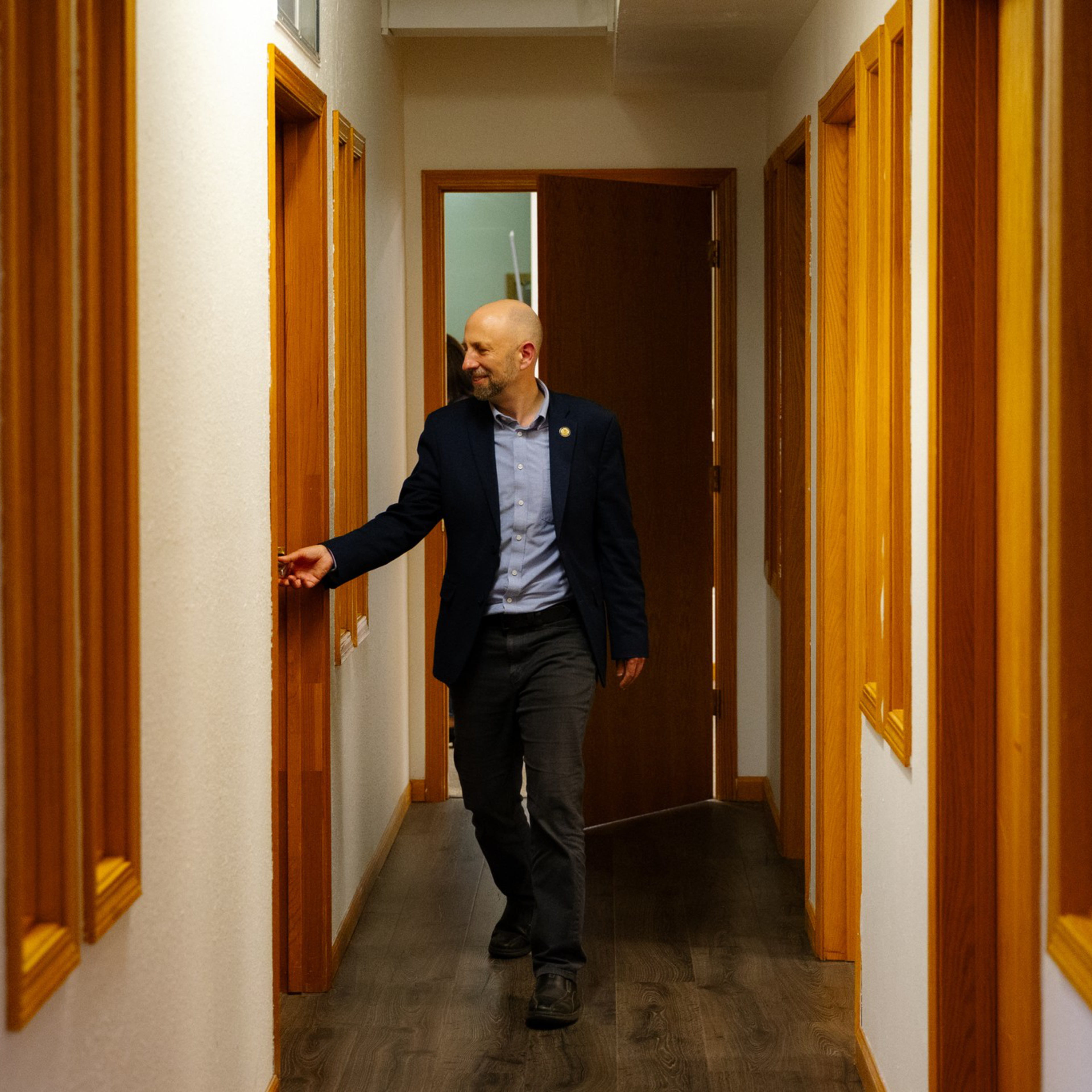For more insider insight into City Hall and local politics, subscribe to The Standard’s politics newsletter Power Play, delivered on Wednesday and Sunday evenings.
The votes are in. The Sunset’s supervisor lost. Everything can go back to normal, right?
Not by a long shot. The successful recall of Supervisor Joel Engardio promises political fallout for everyone under City Hall’s gilded dome.
The recall election was never just about Proposition K, the polarizing measure Engardio championed in November 2024 to permanently close a two-mile strip of the Great Highway to traffic. And it wasn’t just about the magnificent park, Sunset Dunes, that opened in its wake.
Engardio’s District 4, which includes the Outer Sunset and Parkside neighborhoods, now plays host to the most politically engaged voters in the city. A feisty west-side electorate offers an enticing political weapon to cunning politicians looking to influence the next year’s worth of elections and policy decisions.
That electorate is also keeping an eye on Mayor Daniel Lurie, who is now tasked with appointing Engardio’s successor, who would, in theory, provide support for his policy agenda to build more housing, address homelessness and public drug use, and fuel downtown’s economic recovery.
Progressives also see an opportunity to regain allies on the Board of Supervisors, while the recall risks further splintering San Francisco’s moderate Democratic coalition.
Below are key takeaways from the election:
Engardio’s replacement is a defining moment for Lurie
The mayor has the power to appoint a new supervisor to represent D4 through the remainder of Engardio’s term next year. It’s put him in a bind.
Lurie, a centrist Democrat, will undoubtedly want to appoint someone who favors his controversial “Family Zoning Plan” to increase housing production primarily in the Sunset, Richmond, and Marina Districts — all neighborhoods that have historically opposed multi-family housing.
Lurie needs majority approval on the 11-member Board of Supervisors to pass the plan this fall, but now counts only five supervisors in his moderate coalition as often-reliable votes: Stephen Sherrill, Danny Sauter, Bilal Mahmood, Matt Dorsey, and board president Rafael Mandelman.

Supervisor Myrna Melgar, a progressive, typically votes in favor of more housing, but said she is “not yet committed” to approving Lurie’s upzoning plan. Perhaps key to this: the mayor has yet to back her legislation to dedicate future property tax revenue growth to build more affordable projects.
But waiting in the wings are neighborhood groups worried about rampant development along the coast, who have allied with progressives concerned about renter displacement. Any appointee backing Lurie’s zoning plan would face some measure of electoral backlash.
Lurie touched on this in a statement issued after Tuesday’s results.
“I heard countless west side families say what San Franciscans have been feeling for years: that their government is doing things to them, not with them, and that government is not working to make their lives better,” Lurie said.
If he doesn’t hear them, there are already volunteers, donors, and staff experienced at making life difficult for a Sunset District supervisor.
“The infrastructure is already laid out,” said Albert Chow, who also helped organize the recall against Engardio. “We just need a single phone call to activate the hornet’s nest.”
The Great Highway may ride again
The sun may not have fully set on the Great Highway.
Supervisor Connie Chan, who represents the Richmond District, said in April that she is contemplating a ballot measure to reverse Prop. K and bring cars back to the coastal road.
In a statement, Chan said the repeal was still on the table, but she would “push forward conversations” with the mayor and her fellow supervisors first.
“Tonight’s recall election result is another reminder that, as elected leaders, we are accountable to address our constituents’ concerns,” she said.
It would be hard for Lurie to find a pro-housing appointee who also supports repealing Prop. K, which was supported by YIMBY and urbanist groups that are also backing the mayor’s upzoning proposal.
If Lurie appoints someone out of step with D4 voters on Prop. K, expect them to be rejected in next year’s June primary election.
“He’s in a pickle,” said Jane Kim, state director of the Working Families Party and a former supervisor. Backing the upzoning plan, but repealing Prop. K: “It doesn’t work from a policy standpoint.”
Ballot measures and candidates are on newly shaky ground
Other issues on next year’s ballot could also take a hit from the recall’s political fallout.
Conservative voters usually vote against tax measures, the political wisdom goes. That’s why, in 2022, an influx of law-and-order-minded Chesa Boudin recall voters likely played an outsize role in tanking that year’s Muni funding measure, Proposition A. History could repeat itself in 2026.

Political insiders worry that a crucial pair of ballot measures to bolster funding for local transportation systems, including Muni and BART, could be imperiled if a compromise can’t be found on the upzoning issue. Supporters of those initiatives worry that car-friendly and NIMBY voters, filled with confidence over their Engardio takedown, would tank those efforts merely by turning out in larger-than-usual numbers.
Politicos who have frequently claimed the mayor’s upzoning plan would “turn Ocean Beach into Miami Beach” make their game plan clear: progressive Democrats and anti-urbanist neighborhood groups are angling to make upzoning the topic du jour in 2026. The supervisors are voting on it this fall, but the recriminations against it will continue through supervisor races.
Another way it’ll reverberate:
“It’s a wake-up call also for sitting supervisors,” former supervisor Sandra Fewer said of the recall. “This could happen to any of them.”
Upheaval for moderate groups
Engardio’s recall may ultimately serve a political blow to Abundant SF, the group widely credited with teaming up with Engardio to get Prop. K on the ballot.
Candidates may be more wary of teaming up with the group and taking their advice on YIMBY and urbanist policy issues, according to political insiders.
Things also aren’t looking too hot for their main squeeze, State Sen. Scott Wiener. The staunch YIMBY is expected to run for Rep. Nancy Pelosi’s seat when she retires and has championed several bills to spur housing production in the state. He could also take a political hit on the west side.

A June poll conducted to test the temperature on Engardio’s chances also gauged Wiener’s favorability and found him to be “generally unpopular” among District 4 recall voters. Just last week, a crowd in the Richmond District booed the mere mention of his name in a town hall about upzoning.
He takes it in stride.
“Since I first ran for office, I’ve had supporters and detractors and people predicting my political demise because of my strong stances on housing and sustainable transportation,” Wiener said in a statement. “You’re never going to have universal support in politics, and if you do it probably means you’re not doing much.”
Abundant and Wiener’s woes are part of a broader splintering in San Francisco’s moderate Democratic camp. That coalition, made up of pro-law enforcement and pro-housing members, has been slowly fracturing since the mayor’s race, when different moderate Democrats split among three major candidates. The recall widened that divide.
The San Francisco Democratic Party deadlocked in an August endorsement vote on the recall, a result of the fractured moderates. By choosing to take no position on the election, they effectively left Engardio – a political ally – out to dry. Lurie also chose to remain silent on the recall.
One prominent moderate insider said Engardio and Abundant laid the groundwork for the split by closing the Great Highway. Different parts of the coalition tried to warn them, to no avail.
“Absolutely, there’s a fissure,” the insider said. “I think it was all predictable.”

